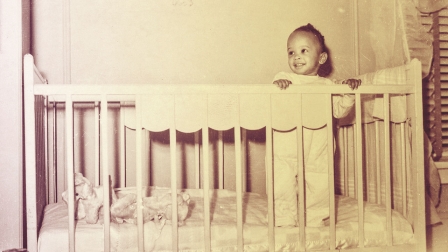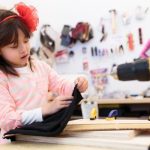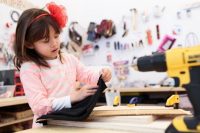Target’s Tech For Tots Aisle: Sure To Be A Guilty Parenting Hotspot
The under-slept, overworked parents of small children are often happy to empty their wallets for any product that promises to make life a bit more manageable. And what better way to do so than modern technology?
Today, Target is introducing a Connected Nursery section at about 450 of its stores across the country. The aisle will feature products from startups and established tech companies, including a baby weight-and-length tracking scale from Motorola, the Kinsa smart ear thermometer that records readings in a smartphone app, and Pi Lab’s Edwin the Duck, a smart rubber ducky that costs $99 and can serve as a nightlight or even as a controller for animated tablet games.
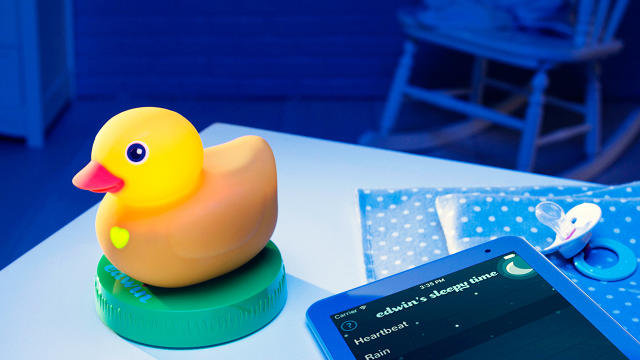
Target is already among the top retailers in the $30 billion annual U.S. baby care industry, according to consumer spending research firm TABS Analytics. And it comes as little surprise that the overhyped Internet of Things is now making its way into the diaper demographic.
Yet some experts are skeptical that connected tools are all that useful for infant care. “It’s important to remember that parents have successfully raised children without these gadgets for thousands of years,” says Susan Linn, a lecturer at Harvard Medical School and author of the book Consuming Kids. “Really, they should go into the marketing of things for babies with the knowledge that most of the things that they’re being sold aren’t necessary.”
Connected baby products can also be more expensive than their old-fashioned counterparts (a drugstore thermometer is around $10 while the Kinsa version is $59.99). But Target vice president and general merchandise manager Amanda Nusz says customers are often willing to pay more for what they see as innovative, genuinely useful tools. Child car seats, for example, have evolved over time, with parents willing to pay a premium for safer designs, she says.
“It has to be meaningful innovation,” she says. “It has to solve a real issue.”
To figure out which technologies would, in fact, have a meaningful impact on families, representatives from Target spent quality time inside the homes of potential customers. In these “guest immersions,” the researchers observe family routines and speak to parents to learn about what kinds of products might make their lives easier.
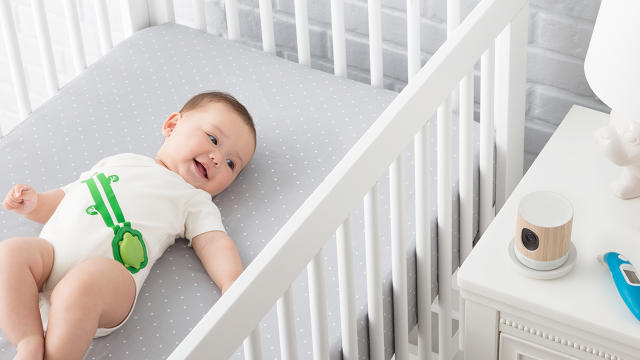
Parents, they learned, wanted simple and reliable ways to monitor their children’s development and health, like tools that help them easily track their babies’ temperatures over time, without having to force a probe into their mouths. And they wanted ways to comfort their babies, even when they’re too young to articulate what’s wrong.
“They were looking for tools and easy ways to get things done in taking care of themselves, their family, and having the day-to-day life taken care of,” says Nusz.
Different families naturally have different beliefs about how to integrate technology into parenting, and how much their children should interact with digital devices. But younger parents in particular see potential developmental benefits from the right types of digital interactions, Nusz says.
“Parents believe it’s about balance,” she says. “The younger parents see there’s an enormous behavior to technology and [that] you shouldn’t be afraid of it either.”
The company held a demo day event earlier this year, letting companies pitch its buyers and executives on connected products aimed at babies and their parents. About a dozen startups came to Target’s Bay Area offices to deliver 20-minute demonstrations and get feedback from Target executives, according to the company.
“It was a success,” says Nusz. “We started to build relationships with people we’re still talking to today.”
The event, which the company plans to repeat in the fall, was part of an ongoing effort by Target to expand its range of connected home technology and make sure it’s actually understandable to customers. Since last year, Target has operated what it calls an Open House in San Francisco—essentially a walk-in, simulated home where customers can learn about, try and even buy connected home products.
Target continues to work with entrepreneurs as they develop their products for the company’s stores, discussing everything from where they’ll be located on the planogram charts that specify store layout to the packaging and signage that will help customers find and understand them, says Nusz.
That’s particularly important for Internet of Things products, where the online experience is also critical.
“Setting these products up for success is creating an ecosystem to support these items,” she says. “It’s not just the items: It includes the package. It includes the content online. It includes the videos, the photos.”
Don Inmon, president and cofounder of Pi Lab, says Edwin the Duck was shaped by both the company’s own testing and feedback from Target, with the company fleshing out apps to soothe a child to sleep with lullabies and measure the temperature of a baby’s bath water.
“The design initially focused on two-way interaction, but without an accelerometer,” he wrote in an email to Fast Company. “After a lot of testing, we felt evolving the design to include the ability to move Edwin and control him on screen would create a more immersive experience. In working with Target for several months, it was clear from their feedback that we also needed to enhance the ‘parent’ apps within Edwin’s world by refining the bed time and temperature applications.”
Generally, Target is willing to share its internal knowledge, as well as access to corporate tools, like a survey platform for posing questions to customers from specific demographics, Nusz says.
And the company hopes to learn more from customer reviews as more parents try Connected Nursery tools—something that may be gratifying even to skeptics of the connected baby market.
“Our hope is that we’ll learn a lot from sales, of course, but also reviews,” she says. “What we’ve found from the millennial parents is they’re very vocal about sharing what they love but also sharing if they don’t love things.”
These are some of the products that will be featured in Target’s Connected Nursery sections at launch:
- Withings monitor. $199.99. An app-linked video baby monitor that also measures air quality and was featured at Target’s Open House.
- Kinsa Thermometer. $59.99. An app-linked ear thermometer that tracks temperature readings and other symptoms over time.
- Edwin the Duck. $99.99. A reboot of the classic rubber ducky that works as a nightlight, Bluetooth speaker, and even as a video game controller.
- MonBaby Smart Button. $169.99. A tiny, wearable monitor that tracks a baby during sleep and reports back to a smartphone app.
- Temp Traq. $19.99. A disposable, wireless patch that tracks a baby’s temperature for 24 hours, reporting readings to a smartphone app.
- Motorola Smart Environment Machine. $79.99. Available in late August, this device will work as a night-light, sound machine, and humidifier.
- Motorola scale. $100. Also available in late August, this scale and accompanying app will track a baby’s weight and length over time and display percentile charts.
Fast Company , Read Full Story
(15)

